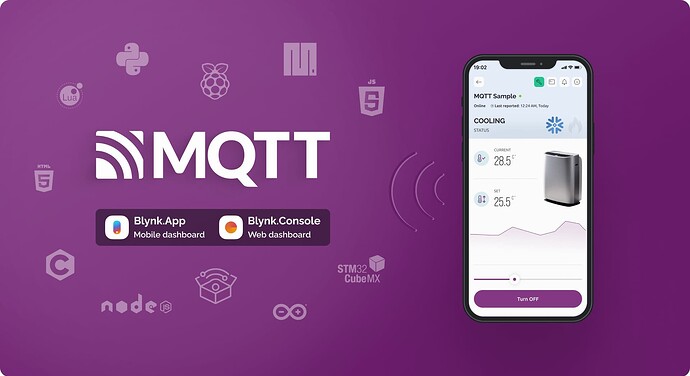![]() Letting Go of Legacy. Building What’s Next.
Letting Go of Legacy. Building What’s Next.
We’re phasing out support for legacy Blynk libraries in Python and Node.js:
![]() blynkkk/lib-python
blynkkk/lib-python
![]() vshymanskyy/blynk-library-js
vshymanskyy/blynk-library-js
![]() vshymanskyy/blynk-library-python
vshymanskyy/blynk-library-python
The Blynk C++ library remains the primary, most lightweight, and easiest way to develop your devices with Blynk — delivering a superior developer experience.
For other languages, we’re now focused on scalable, modern device-to-cloud workflows based on MQTT — flexible, powerful, and vendor-neutral.
To help you make the switch, we’ve created a Blueprint packed with ready-to-use examples for different platforms and environments. Each includes pre-built web and mobile dashboards, so you can start testing immediately.
Available code samples:
• Python 3 – For SBCs like Raspberry Pi and industrial gateways
• MicroPython – Minimal, easy-to-modify firmware
• HTML5 / JavaScript / Node.js – Browser-based control via WebSocket
• Lua – For OpenWrt routers and Onion Omega2
Also available: examples for Arduino, Plain C, STM32Cube, ESP-IDF Cellular, with more to come.
No vendor lock-in. Pick your language, flash your board, and see live data in minutes →
mqtt #IoTPlatform python micropython arduino esp32 #PlatformIO stm32 #JavaScript lua #DeviceToCloud #IoTBlueprint #EdgeComputing #NoCodeIoT #Blynk
